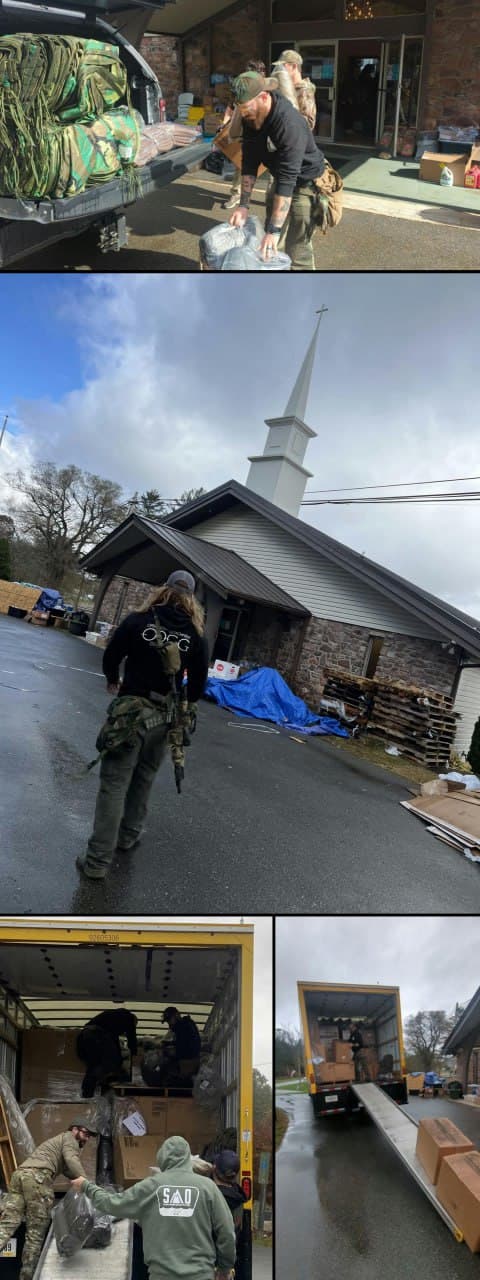Local Activist Takes Matters Into Own Hands, Vows to Support Community Amid Government Inaction
In a bold move reflecting deep frustration with government inaction, local activist Maria Sanchez has declared her commitment to supporting her community without federal assistance. Sanchez, who has been a prominent figure in social justice circles, is stepping up her efforts amid growing concerns that the government is failing to address pressing needs. "If the United States government refuses to help my people, I will continue helping them myself," Sanchez stated during a recent community gathering.
Background & Context
The backdrop to Sanchez"s declaration is a rising tide of discontent among marginalized communities across the nation. Many residents feel abandoned by their government, particularly in light of recent crises that have exacerbated systemic inequalities. These sentiments echo broader movements seen across the country, such as the ongoing protests demanding U.S. action on the Gaza humanitarian crisis, where over 40 individuals were arrested as thousands rallied for change. This growing unrest highlights the urgent need for local leaders like Sanchez to fill the gaps left by governmental inaction.
Sanchez"s approach is not unprecedented; grassroots movements have historically played pivotal roles in advocating for social change and providing essential services. However, the current climate presents unique challenges, as funding cuts and policy changes threaten to dismantle existing support systems. As previously reported, labor movements are also gaining momentum, as evidenced by the recent strike of 3,000 Boeing workers demanding fair wages amid a fighter jet production crisis. These events illustrate a broader struggle for equity and justice that Sanchez and her supporters are keenly aware of.
Key Developments
In her recent initiative, Sanchez has launched a community support program aimed at providing food, healthcare, and educational resources to underserved populations. This program is designed to address immediate needs while fostering long-term empowerment. "We cannot wait for the government to take action; we must empower ourselves and our neighbors," Sanchez emphasized during her speech, which resonated deeply with attendees.
The program has already begun to show results, with volunteers distributing food and supplies to hundreds of families in need. Additionally, Sanchez is working to establish partnerships with local businesses to provide job training and employment opportunities. This proactive stance has garnered significant attention, positioning Sanchez as a leader in the fight for social justice and community resilience.
Broader Impact
The implications of Sanchez"s work extend beyond her immediate community. By taking charge, she not only addresses local needs but also serves as a model for other activists nationwide. Experts suggest that grassroots initiatives like hers can create a ripple effect, inspiring similar movements across the country. "When communities see their own leaders stepping up, it encourages others to do the same," noted Dr. Emily Thompson, a social justice scholar at the University of California. "This could be a turning point in how we view community engagement and responsibility."
Moreover, Sanchez"s efforts are a crucial response to the current political landscape, where many feel that their voices are unheard. The disparity between government promises and actual support has fueled skepticism among citizens. As previously noted in related coverage of the protests over the Gaza humanitarian crisis, these sentiments are echoed throughout various demographics, highlighting a collective call for action and accountability.
What"s Next
Looking ahead, Sanchez plans to expand her program to include mental health services and legal aid, recognizing the multifaceted challenges faced by her community. She aims to secure funding through grants and local fundraising efforts, but the path is fraught with obstacles, as government resources are dwindling. "We have to be strategic and resilient," Sanchez said, outlining her vision for the future. "Our community deserves to thrive, not just survive."
As she continues her work, Sanchez is also calling for greater collaboration among local leaders and organizations to build a united front against systemic injustices. With the backdrop of recent labor movements and social activism, the potential for change is palpable. The coming months will be critical as Sanchez and her community navigate these challenges, setting the stage for a potentially transformative movement that advocates for equity and justice on multiple fronts.

![[Video] Anti-ICE Protester Pepper Sprayed as CBP Agents Disperse Crowd in Minneapolis](/_next/image?url=%2Fapi%2Fimage%2Fthumbnails%2Fthumbnail-1768260677127-y71sb7-thumbnail.jpg&w=3840&q=75)

![[Video] Several injured as U-Haul truck drives through Iranian protestors in Los Angeles](/_next/image?url=%2Fapi%2Fimage%2Fthumbnails%2Fthumbnail-1768176682028-q95y6j-thumbnail.jpg&w=3840&q=75)
![[Video] Scuffle breaks out between Trump supporters and Anti-ICE protesters in Times Square](/_next/image?url=%2Fapi%2Fimage%2Fthumbnails%2Fthumbnail-1768165958203-hgcgb-thumbnail.jpg&w=3840&q=75)


![[Video] Gunfire between Iraqi security forces and Sadr militias in Baghdad](/_next/image?url=%2Fapi%2Fimage%2Fthumbnails%2Fthumbnail-1768343508874-4redb-thumbnail.jpg&w=3840&q=75)
